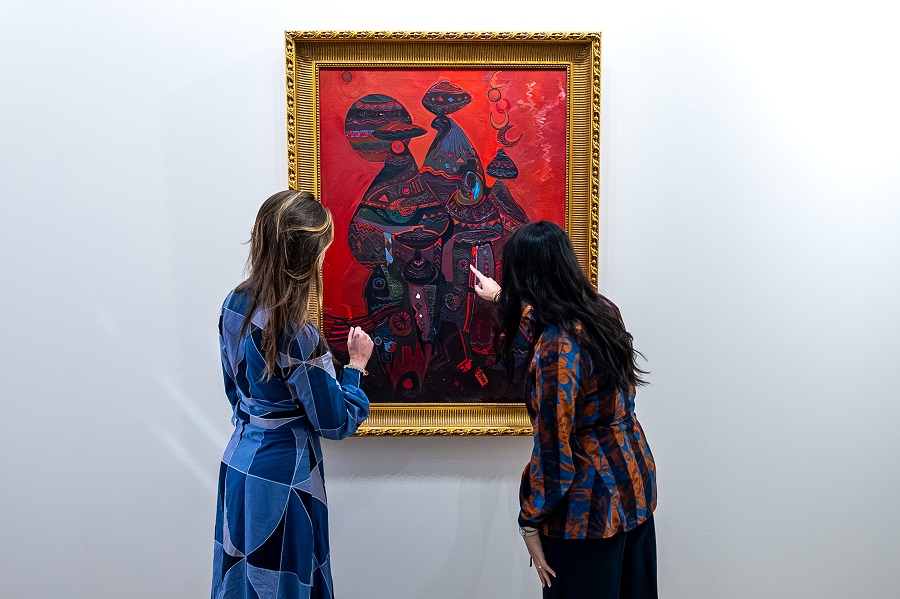Navigating the ethical landscape of AI on the road
https://arab.news/4d3zs
In the vibrant city of Techville, a new debate has taken center stage: The ethics of artificial intelligence, particularly in the realm of driverless cars.
Picture this: A bustling intersection, a driverless car, and a family of ducks waddling across the road. It’s a dilemma straight out of Punch and Judy.
Punch, the ever-optimistic puppet, argues: “Driverless cars, my dear Judy, are the future! They’ll make our roads safer, reduce traffic jams and maybe even find a parking spot downtown on a Friday night. What’s not to love?”
Ah, but Judy, ever the skeptic, counters: “But Punch, what happens when the car faces the classic ethical dilemma? Does it swerve to avoid hitting a group of pedestrians, potentially endangering its passenger, or does it stay the course and risk harming the pedestrians?”
But behind the whimsy lies a serious conundrum. Should our autonomous vehicles prioritize the safety of their passengers above all else, even if it means squashing innocent ducklings? Or should they take a more democratic approach, where the needs of the many, or in this case the many webbed feet, outweigh the needs of the few?
In Techville, opinions vary.
“I bought my driverless car to protect me,” argues Mr. Pennyworth, an avid collector of vintage gadgets and frequent patron of the city’s hipster coffee shops. “If it’s not going to prioritize my safety, then what’s the point?”
But not everyone is on Team Pennyworth.
“We can’t just trample over the little guys,” protests Ms. Haversham, a self-proclaimed environmentalist and founder of the Techville Birdwatchers Society. “If our driverless cars start mowing down wildlife left and right, we might as well go back to riding bicycles.”
Meanwhile, the city’s residents continue to grapple with more practical concerns.
Next time you find yourself behind the wheel of a self-driving car, just remember to keep your eyes on the road — and your heart in the right place.
Rafael Hernandez de Santiago
“I don’t care if my driverless car runs on organic kale smoothies or solar power,” declares Ms. Rodriguez, a wellness influencer with a penchant for Instagram-worthy yoga poses. “As long as it gets me to my juice cleanse appointments on time, I’m golden.”
As the debate rages on, one thing becomes abundantly clear: The future of transportation in Techville is anything but predictable.
Will our driverless cars become beacons of ethical virtue, cruising the streets with the grace of a ballerina in a tutu? Or will they succumb to the same moral pitfalls as their human counterparts, engaging in petty road rage and aggressive honking?
Enter the philosophical musings of Immanuel Kant, who once said: “Act only according to that maxim whereby you can at the same time will that it should become a universal law.”
In other words, if you wouldn’t want everyone else doing the same thing in the same situation, maybe it’s not such a great idea. Apply this to driverless cars and suddenly Punch and Judy are in a full-blown moral quandary.
Only time will tell. But one thing is for certain: The ethical implications of artificial intelligence are never far from our minds. So, the next time you find yourself behind the wheel of a self-driving car, just remember to keep your eyes on the road — and your heart in the right place.
But fear not, dear citizens of Techville, for amid the chaos and confusion, there is hope. Engineers and ethicists are working tirelessly to program AI with a moral compass, teaching it to navigate the murky waters of right and wrong.
In conclusion, let us heed the words of that wise old philosopher Plato, who famously said: “We can easily forgive a child who is afraid of the dark; the real tragedy of life is when men are afraid of the light.”
Let us not be afraid to shine a light on the ethical implications of artificial intelligence, for only then can we truly navigate the path to a brighter future — one where Punch and Judy can finally set aside their differences.
- Rafael Hernandez de Santiago, viscount of Espes, is a Spanish national residing in Saudi Arabia and working at the Gulf Research Center.
























